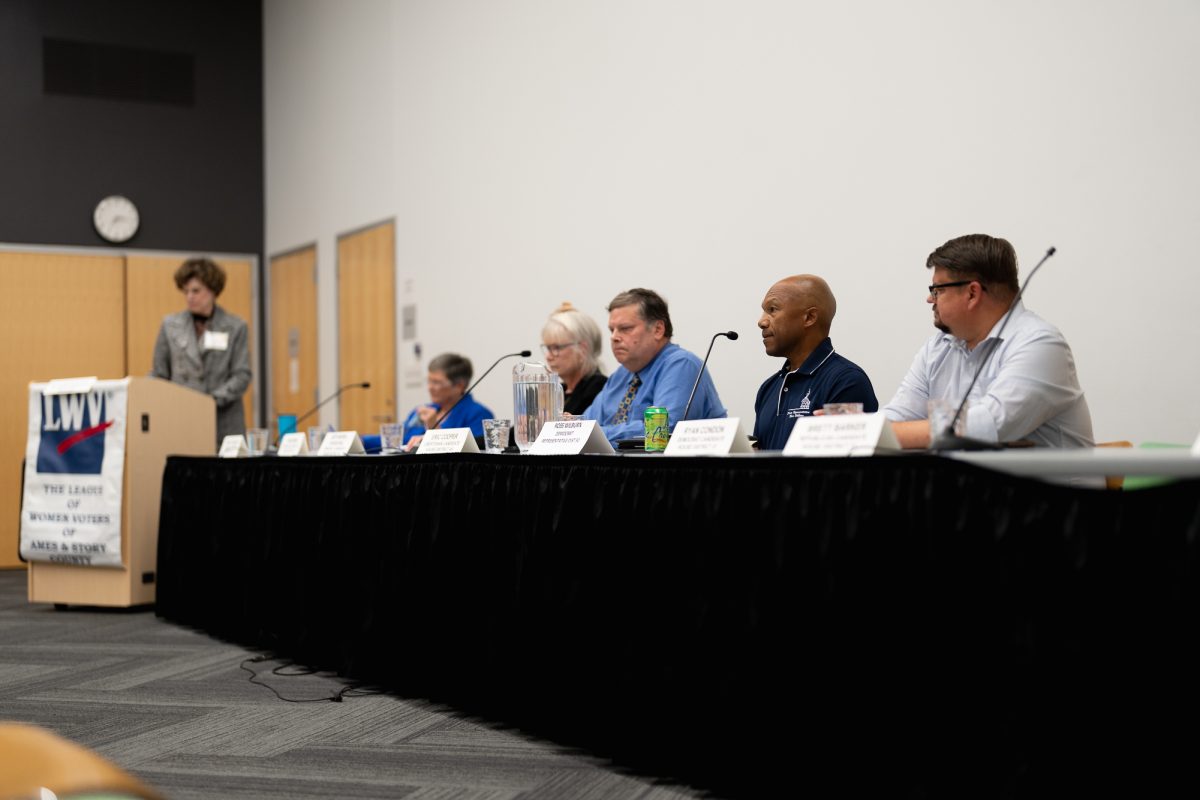Epidemic strikes colleges nationwide
March 30, 1998
An epidemic spreading across many college campuses recently has caused concerns at Iowa State and campuses nationwide.
According to the American College Health Association (ACHA), meningococcal meningitis kills about 300 people a year. The disease causes permanent hearing loss, seizures and mental or behavioral diseases in one third to half of the 2,600 people who are infected each year.
Like on other campuses, students at ISU are affected by special risk factors that increase the spread of the disease. Students housed in tight dormitories, as well as students who smoke, drink and attend bars are more susceptible to meningitis. Stress caused by frequent lack of sleep also contributes to acquiring the disease.
Peak times to contract meningitis include a two-week period following an outbreak of influenza, said Patricia Quinlisk, state epidemiologist for the Iowa Department of Public Health.
Quinlisk said the bacteria that triggers meningitis normally lingers in the back of the throat and rarely becomes activated. She added that the number of people who are unaware that they carry the disease totals five to 10 percent.
Since 1992, there have been 36 outbreaks of meningococcal meningitis, 50 percent of which occurred on university, college or prep school campuses.
According to ACHA, colleges and universities like ISU that maintain a student population of about 25,000 will see a case about every eight years.
Indiana University reported one fatality from meningitis in September 1997, and a recent death involved a graduate student at the University of Florida.
Major symptoms of the disease include fever, severe headache, stiff neck, rash, nausea, vomiting and lethargy. Meningitis spreads through sneezing, coughing or respiratory droplets, as well as direct contact with an infected person.
An available vaccine for meningitis is the HIB (Haemophilus Influenza type B) vaccine and an antibiotic called Rifampin, Quinlisk said.
Before the HIB vaccine was available, an average of 50 cases of Haemophilus Influenza type B were reported in Des Moines each year, she said.
“The HIB vaccine is astronomically successful and has stopped the disease in its tracks,” she said.
Quinlisk added that since the vaccine was developed, Des Moines hospitals have not seen a meningitis case for the past three years.
But the vaccine for meningococcal meningitis has a few downfalls, said Judy Goddard, nurse epidemiologist for the Iowa Department of Public Health.
Goddard said the vaccine does not cover type B meningitis, which comprises 50 percent of meningitis cases.
Although the vaccine does cover four of five scerotypes, the vaccine is not routinely given for all types of meningitis, Quinlisk said.
She added that the vaccine is not effective for children under age two because they are immune to the vaccine.
Mark Blaedel, director of the ISU Student Health Center, said he is confident that a successful meningitis vaccine will be developed within the next three to five years.
“Every vaccine seems to be getting better,” Blaedel said.






